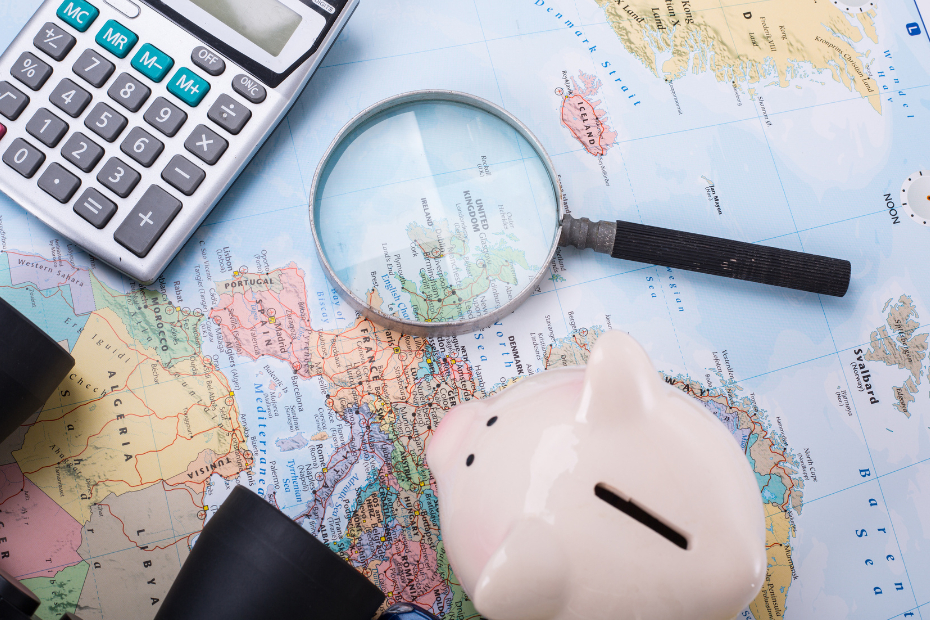Published July 14, 2023 • 4 Min Read
A limited budget doesn’t have to define the quality of your trip or the magic of your destination. These eight money-saving travel tips can help you indulge your wanderlust and explore what the world offers for less.
1. Be flexible with your dates
There are certain times of the year when travel is particularly expensive: March break, holidays and the heart of summer. If you have some flexibility, consider travelling in off-peak seasons. You might save on flights, hotels and rental cars, but the destination may be less crowded. If off-peak doesn’t work for you, try to play around with your travel days — a Wednesday to Wednesday flight, for example, can be considerably cheaper than a round-trip weekend route.
2. Pack light
The less you pack, the more you may save on airline baggage fees. On top of that, you may be able to advantage of public transit at your destination instead of feeling like you need a taxi/rental car to get from the airport to your accommodations.
3. Explore budget-friendly destinations
Southeast Asia — particularly Thailand, Laos, Vietnam and Cambodia — is renowned for being a bargain-friendly destination for international travellers. With inexpensive guest houses, great street food, free attractions and cheap transportation, it’s easy to soak up the culture of these fabulous countries even on the tightest of budgets. Some smaller countries in Central America (such as El Salvador, Honduras, Nicaragua and Guatemala) are also affordable options, as are India, Mexico and Portugal (although it has been getting busier and pricier in recent years).
4. Find affordable accommodation
Around the world, there is a bounty of cheap accommodations to be found. From guest houses in Asia to hostels in Europe and vacation rentals across the globe, many options cater to budget-conscious travellers. When you search for places to stay, avoid looking at popular chains and try to find accommodations slightly off the beaten path — you’ll likely find better deals there.
5. Eat like a local
One of the best parts of travelling is exploring your destination’s local food and culture. Instead of regularly eating out at restaurants, sample street food and check out the markets for an authentic taste of the country. These days, many travel bloggers and vloggers cover regional food with an eye toward what’s local and inexpensive.
6. Research free or low-cost activities
There is so much you can do for free when you’re exploring a new country. Stroll through ancient streets or hike through mountain trails. Visit the beach, local ruins, free museums and city landmarks or find “pay-what-you-can” attractions with low admission for curious travellers like you.
7. Plan ahead
Planning well in advance can give you the opportunity to save on flights and accommodations, as prices typically go up the closer to travel dates. While there are some last-minute deals, advance planning is usually the best way to save!
8. Use your points
Whether you earn points for cash back, travel rewards, merchandise or gift cards, there are bound to be ways to apply your points toward your next adventure. Look closely at your credit card redemption package to explore how your points may be used and which options get your points working their hardest.
While travelling on a budget poses some limits, it can help you explore unconventional options for your next vacation. Markets, restaurants, museums and theatres that fly under the radar can give you a true sense of your destination and offer an authentic, local perspective.
Where is your next adventure taking you?
Whether you have an RBC credit card, bank account or both, you can earn points on every purchase you make. Learn more about how through our Value Program, you can earn Avion points when you use debit.
This article is intended as general information only and is not to be relied upon as constituting legal, financial or other professional advice. A professional advisor should be consulted regarding your specific situation. Information presented is believed to be factual and up-to-date but we do not guarantee its accuracy and it should not be regarded as a complete analysis of the subjects discussed. All expressions of opinion reflect the judgment of the authors as of the date of publication and are subject to change. No endorsement of any third parties or their advice, opinions, information, products or services is expressly given or implied by Royal Bank of Canada or any of its affiliates.
Share This Article






